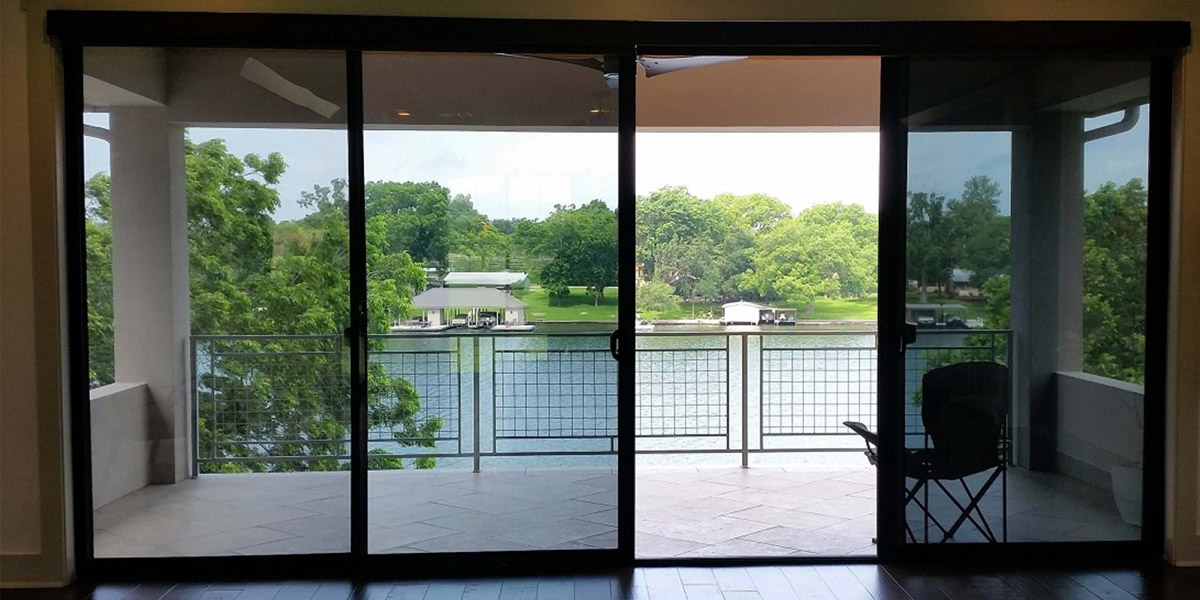Residential Window Tint: Increase Security and Include a Layer of Security
Residential Window Tint: Increase Security and Include a Layer of Security
Blog Article
Just How Residential Window Tinting Improves Your Home's Energy Efficiency
Residential home window tinting offers a compelling service for house owners looking for to enhance power efficiency within their home. By applying specialized films to home windows, it effectively reduces warmth transfer, therefore supporting interior temperature levels and decreasing the need for too much home heating or air conditioning. This not just reduces power usage however additionally provides a more comfortable setting by minimizing glow. Understanding the nuances of just how tinting works and selecting the proper kind for your home can be critical. Curiously, what variables should one think about before making this investment?
Comprehending Window Tinting
Understanding window tinting is important for property owners looking for to improve both convenience and energy efficiency in their space. Residential Window Tint. Window tinting entails the application of a thin film to the inside or exterior surface area of glass home windows. This film can significantly regulate the quantity of sunlight and heat that goes into a home, thus affecting interior climate conditions
There are various kinds of window tinting films readily available, each with distinct homes. The effectiveness of window tinting is typically gauged by its Visible Light Transmission (VLT) percent, which indicates exactly how much light can pass through the movie.
Advantages of Energy Effectiveness
Window tinting not just improves looks yet likewise plays a considerable role in boosting energy efficiency within property rooms. By reducing heat transfer through home windows, tinted films create a much more stable indoor climate, which can cause substantial reductions in power consumption for heating and cooling. This power efficiency converts into reduced utility costs, supplying property owners with significant lasting financial savings.

Furthermore, home window tinting enhances the comfort of living rooms. By lessening glow and blocking hazardous UV rays, tinted home windows develop a more pleasant atmosphere, which can lead to improved well-being for residents. The defense against UV rays also aids protect furniture and flooring from fading, adding to the longevity of home items.
Just How Tinting Works
Tinting films operate through a mix of advanced materials and innovations designed to regulate the amount of solar power entering a home. Mostly composed of polyester, these films often incorporate ceramic or metal particles that absorb and show warm. This dual capability permits them to considerably reduce the penetration of ultraviolet (UV) rays and infrared radiation while allowing noticeable light to travel through.
The effectiveness of window tinting is determined by its solar warmth gain coefficient (SHGC), which indicates just how much solar power is transmitted via the home window. Lower SHGC values are more suitable as they denote greater warmth rejection. Additionally, home window tints can feature a range of tones, allowing homeowners to customize their aesthetic preferences while enhancing power efficiency.
In addition, these movies work as a barrier, preventing heat loss during cooler months by reflecting indoor heat back right into the living space. This thermal insulation impact complements the air conditioning benefits gotten during warmer months, adding to a well balanced indoor climate year-round. By taking care of solar power properly, property window tinting not just improves comfort yet additionally plays an important function in lowering energy usage and lowering energy expenses.
Choosing the Right Color

There are various kinds of window movies readily available, including colored, metalized, and ceramic. Ceramic movies provide excellent warm control without compromising exposure and are highly sturdy, making them a prominent selection.
Noticeable light transmission (VLT) is an additional vital factor, as it suggests the quantity of natural light that can go through the colored glass. Home owners should select a tint with a VLT that enhances their lights choices while still offering sufficient glare reduction.
In addition, evaluating the solar warmth gain coefficient (SHGC) can assist establish exactly how well a tint can block warm from sunshine. A reduced SHGC shows much better heat control, ultimately boosting energy performance.
Setup and Upkeep Tips
Correct setup and upkeep are essential elements in taking full advantage of the advantages of residential home window tinting. To accomplish optimum outcomes, it is a good idea to work with a qualified expert for installation. This ensures that the color is used appropriately, staying clear of air bubbles, wrinkles, or imbalance that can endanger performance. Professionals likewise utilize specialized devices and techniques, which can improve the durability and performance of the tint.
Following setup, maintenance is important to lengthen the life of the window film. It is recommended to wait a minimum of thirty days prior to cleansing the tinted windows to enable the glue to cure fully. When cleaning, make use of a soft Website towel and a gentle, ammonia-free cleaner to prevent harming the film. Prevent unpleasant materials that can scratch the surface area.
Dealing with these problems promptly can stop more damages and preserve energy efficiency. By sticking to these setup and maintenance tips, house owners can guarantee their home window tinting proceeds to provide considerable power cost savings and convenience for years to come.
Conclusion
To conclude, property home window tinting works as an effective solution for boosting energy performance within homes. By reducing warm transfer and blocking damaging UV rays, window movies add to lower power consumption and enhanced interior comfort. The selection of suitable tinting materials, along with appropriate installation and maintenance, additionally optimizes these advantages. Inevitably, home window tinting represents a lasting financial investment that not just decreases energy bills but also advertises a comfy living setting throughout Bonuses the year.
Window tinting entails the application of a thin movie to the interior or exterior surface of glass home windows. By decreasing heat transfer through windows, tinted films create an extra secure interior climate, which can lead to significant reductions in energy consumption for home heating and cooling.The efficiency of home window tinting is gauged by its solar warm gain coefficient (SHGC), which indicates how much solar energy is sent via the window. By managing solar power successfully, residential home window tinting not just enhances comfort but also plays an essential function in minimizing energy usage and lowering energy bills.
By lowering heat transfer and obstructing unsafe UV rays, home window movies add to decrease power usage and improved interior comfort.
Report this page